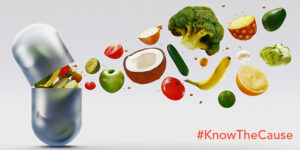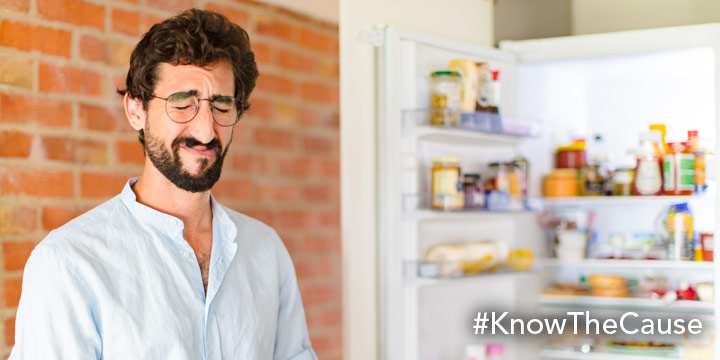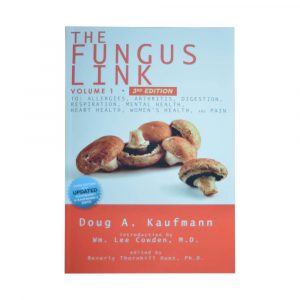

In the hectic, fast-paced world that we live in, there are a number things that seem to make feeling anxious inevitable. From a dismal 24 hour news cycle seemingly always rife with bad news, to the constant overstimulation of social media, mobile devices and screens, finding some peace in today’s world seems virtually impossible, for many people.
Unsurprisingly, more and more people report suffering from anxiety and associated feelings like depression than ever before. These feelings often land people in their doctor’s office seeking relief, which is understandable. To that end, more people are on mood altering drugs than ever before.
Seeking professional help for feelings of anxiety is a undeniably a good thing. For those feeling anxious or overwhelmed, modalities like therapy and even medication can be life saving in the most literal sense. And while you should always talk to your doctor, listen to his or her advice (even if they recommend taking drugs) it is worth asking: Are lifestyle factors that are within your control possibly playing a role in your anxiety?
In truth, we have known that there are many factors within our control that can help relieve feelings of anxiousness. It has been known for some time that exercise can assist in minimizing the effects of stress and anxiety. Taking time to be quiet, pray, or meditate have all been shown to lower stress and anxiety. But the most recent discoveries about the relationship between lifestyle choices and anxiety likely has to do with the role played by our diet.
There are a number of things to know about the relationship between diet and anxiety:
There is another question that needs to be asked however, if we are talking about the dietary link to anxiety, and that is, can yeast, fungi or their poisons influence anxiety?
This might seem like a detour from the subject at first glance, but there are reasons why this is critical to the conversation. There are two key examples that can shine some light on how fungi/and or mycotoxins can have a direct result on how we feel.
The first is alcohol. Alcohol can temporarily relieve feelings of anxiety, only to have those feelings come roaring back. Alcohol is a byproduct of yeast (and too much of it is toxic), so to think of alcohol as a mycotoxin is not unreasonable. Alcohol, for better and worse, has a direct result on how you feel, both good and usually bad (after the fact). Its link to self-medicating anxiety and exacerbation of anxiety is well-known.
The second example of how fungi can have effects on how you feel is the, powerful, mind-altering properties of psilocybin-containing mushrooms, and the mycotoxin produced by Claviceps purpurea, known as ergot. Ergot poisoning is thought to be responsible for the hallucinations that led to the girls in the Salem Witchcraft Trials being found guilty of witchcraft. “Magic” mushrooms are well-known for their mind-altering affects.
So, it is not unreasonable to assume fungi and yeast can affect your mind and mood in profound ways. And, we know that diet can influence an underlying fungal infection that might have eluded diagnosis, which is thought to be common by many practitioners.
Interestingly, many of the foods thought to exacerbate anxiety are the very foods that are eliminated on The Kaufmann Diet, which is an anti-fungal program designed to eliminate pathogenic yeasts and fungi from the body and limit the amount of mycotoxins. This is done by eliminating foods thought to be commonly contaminated with these mold poisons.
Also interestingly, fungal infections are thought to influence many of the factors that scientists now say are part of the dietary link to anxiety.
In the past few years, as we have learned about the possible dietary links to anxiety, anti-anxiety diets have arisen as a means with dealing with anxiety. None of these, however, address the possible fungus link to anxiety. To that end, it might be beneficial to ask your doctor about switching to The Kaufmann Diet. Already, many of the foods that are thought to promote anxiety, such as foods high in sugar, caffeine, alcohol and processed foods, are virtually eliminated.

The Kaufmann diet will also address any underlying fungal condition, should one be present. The Kaufmann Diet also deals with the issue of yeast overgrowth and seeks to support the micro biome of the gut in a beneficial way. Often, people who go on the Kaufmann Diet for a period of time experience relief from many symptoms that have plagued them for years, including feelings of depression and anxiety. This approach should certainly be tried under the supervision and with the permission of your doctor.
Consider including a more unilateral approach too; things like exercise, getting good sleep, and stress reduction all need to be included in your regimen if you are going to maximize the effects of changing your diet. While these factors likely have benefits for anxiety, they will have benefits for your overall health, as well.
The Best Supplements for Anxiety
If you have more questions we invite you to join our live Q&A show every Tuesday and Thursday.
Doug Kaufmann has written many books that cover a full range or health issues. Find out which of his books best suits you by clicking the button below.
Doug Kaufmann developed his diet after years studying the clinical effects of pathogenic fungi on the body. Fungi and yeasts can become parasitic organisms on and inside our body, causing health problems that can be difficult to diagnose. Learn more about the Kaufmann Diet, change your life and know the cause.
We encourage all visitors to this site to take some time and study these technical articles prior to initiating lifestyle changes, including dietary changes and to do so with their physician’s awareness and approval. The articles posted in this link are scientific and with few exceptions are taken from medical journals familiar to healthcare workers.
Looking for help assembling antifungal Kaufmann Diet approved recipes for breakfast, lunch or dinner? We have several videos, books and recipe write ups here on Know the Cause that will help your health journey. The recipes in this section are so good, you’ll feel like you’re indulging. No sacrifice needed! Enjoy.
© 2024 Mediatriton Inc. All Rights Reserved • Website by Skynet Solutions